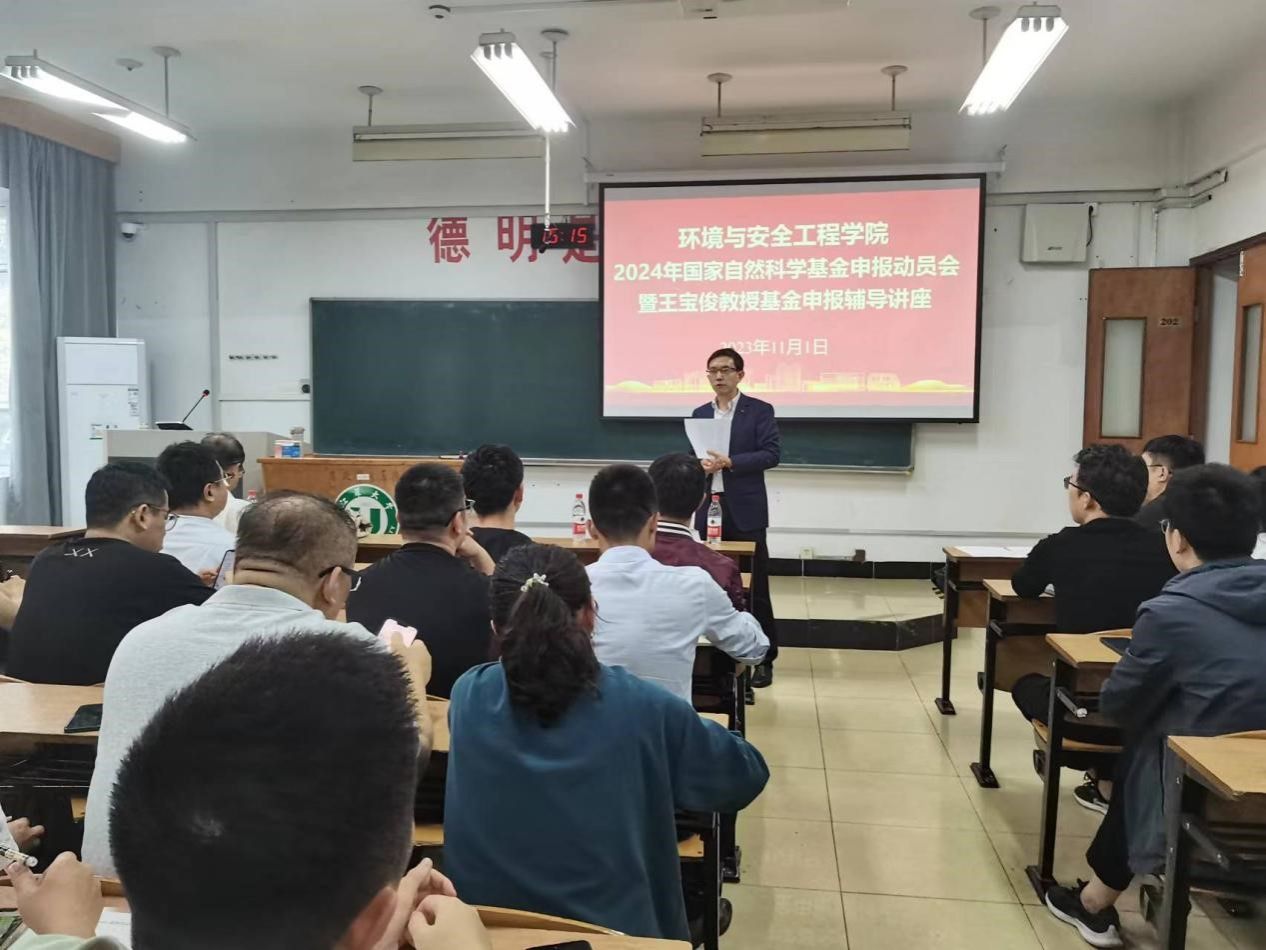On November 1, the 2024 National Natural Science Foundation of China (NSFC) application mobilization meeting of the School of Environmental and Safety Engineering was held as scheduled, and more than 100 teachers and doctoral students of the School attended the meeting.

At the beginning of the meeting, Professor Xu Hui, Dean of the College, made a detailed deployment for the application of the college fund, clarified the timetable for the application of the college fund, and said that he would fully support the fund application in 2024 from the college. At the same time, the meeting invited Professor Wang Baojun, Dean of the School of Chemical Engineering and Technology of Taiyuan University of Technology, Professor and Doctoral Supervisor of the State Key Laboratory of Clean and Efficient Utilization of Coal-based Energy, Editorial Board Member of CIESC Journal, Executive Editor-in-Chief of Coal Conversion, and Evaluation Expert of the Department of Chemistry of the National Natural Science Foundation of China, to give a speech entitled "Reflecting on the Important Ten Questions, Clarifying the Internal Relationship, and Improving the Quality of Declaration" for the young professors of the college Professor Wang Baojun pointed out that there is never a shortcut to the application of the National Natural Science Foundation of China, Professor Wang combined the successful experience of his research group, from the "what", "why", "How" ("what", "why", "how" three levels, the National Natural Science Foundation of China declared whether the title is accurate, whether the abstract is word-for-word, whether the key scientific issues are concise, Ten questions such as whether the innovation point is really new, combined with the ten questions, shared the key points, skills and precautions of each link of the natural fund application form. Professor Wang also encouraged the teachers and students of our institute to refuse to lie down and take the initiative to embrace the emotional mission of fund declaration.

Finally, on behalf of all the teachers and students of the school, Dean Xu thanked Professor Wang for taking time out of his busy schedule to provide guidance to the teachers of our school, and pointed out that this report is vivid and humorous, comprehensive in content, and full of dry goods, which clarifies the ideas for the writing of the application form for the teachers of our school, and is of great significance for improving the funding rate of the National Natural Science Foundation of China in 2024.

Wang Baojun, Dean of the School of Chemical Engineering and Technology, Taiyuan University of Technology, Professor and Doctoral Supervisor of the State Key Laboratory of Clean and Efficient Utilization of Coal-based Energy, Editorial Board Member of CIESC Journal, Executive Editor-in-Chief of Coal Conversion, and Expert of the Ministry of Chemistry of the National Natural Science Foundation of China. He is engaged in the theoretical research of quantum chemical calculation and molecular simulation in coal chemical industry, and discusses the microscopic quantitative law and catalytic process design of one-carbon reaction catalyst structure modulation and performance regulation at the electronic-molecular level. He has presided over 8 national key R&D projects, key projects of the National Natural Science Foundation of China, general projects, international cooperation projects, and 9 provincial and ministerial research projects. As the first person to complete the award, he has won one first prize of the Natural Science Award of Shanxi Science and Technology Award, and has published more than 100 research papers in academic journals such as "ACS Catalysis", "Energy & Environmental Science", and "Journal of Catalysis". More than 80 doctoral and master's students have been trained.